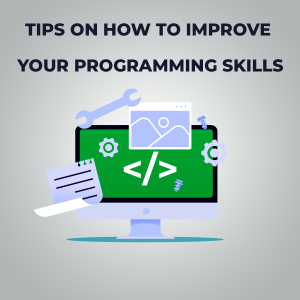
Unlocking Success: Expert Programming Tips
Mastering the Fundamentals
To excel in computer programming, one must first master the fundamentals. This includes understanding basic concepts such as variables, data types, loops, and conditional statements. Without a strong foundation, it’s challenging to tackle more complex programming tasks effectively. Dedicate time to solidify your understanding of these fundamental principles before moving on to more advanced topics.
Embracing a Growth Mindset
Success in programming often hinges on having a growth mindset—a belief that intelligence and abilities can be developed through dedication and hard work. Embrace challenges as opportunities for growth rather than obstacles. View mistakes as valuable learning experiences and approach problems with a curiosity to understand and improve.
Continuous Learning and Practice
Computer programming is a dynamic field that constantly evolves with new technologies and methodologies. To stay relevant and competitive, it’s essential to engage in continuous learning and practice. Stay updated with industry trends, explore new programming languages, and undertake coding challenges regularly to sharpen your skills and expand your knowledge base.
Writing Clean and Readable Code
One hallmark of a proficient programmer is the ability to write clean and readable code. Well-structured code not only makes it easier for others to understand and collaborate but also enhances maintainability and scalability. Follow established coding conventions, use meaningful variable names, and document your code effectively to ensure clarity and coherence.
Problem-Solving Skills
At its core, programming is about solving problems—whether it’s automating repetitive tasks, optimizing processes, or developing innovative solutions. Cultivate strong problem-solving skills by breaking down complex problems into smaller, more manageable tasks, identifying patterns and trends, and devising systematic approaches to tackle them efficiently.
Effective Time Management
Time is a precious resource in programming, especially when working on tight deadlines or in team settings. Develop effective time management skills to prioritize tasks, allocate time wisely, and maintain focus and productivity. Break down projects into smaller milestones, set realistic deadlines, and use productivity techniques such as the Pomodoro Technique to maximize efficiency.
Collaboration and Communication
Programming is rarely a solitary endeavor; it often involves collaboration with team members, stakeholders, or clients. Effective communication skills are essential for conveying ideas, discussing requirements, and resolving conflicts. Cultivate strong communication skills—both verbal and written—and foster a collaborative spirit to enhance teamwork and project success.
Seeking Feedback and Mentorship
Feedback is a powerful tool for growth and improvement. Seek feedback from peers, mentors, or online communities to gain valuable insights and perspectives on your coding practices and projects. Actively solicit constructive criticism and be open to learning from others’ experiences and expertise. Additionally, consider seeking mentorship from seasoned professionals to accelerate your learning journey.
Staying Persistent and Resilient
Programming can be challenging and frustrating at times, especially when faced with bugs, errors, or setbacks. However, resilience is key to overcoming obstacles and achieving success in the long run. Stay persistent in the face of challenges, persevere through difficult tasks, and maintain a positive attitude even in the face of failure. Remember that every obstacle is an opportunity for growth and learning.
Celebrating Achievements and Milestones
Amidst the trials and tribulations of programming, it’s essential to celebrate achievements and milestones—no matter how small they may seem. Recognize and acknowledge your progress, whether it’s mastering a new concept, completing a challenging project, or landing a programming job. Celebrate your successes, no matter how modest, and use them as fuel to propel you forward on your programming journey. Read more about computer programming tips
